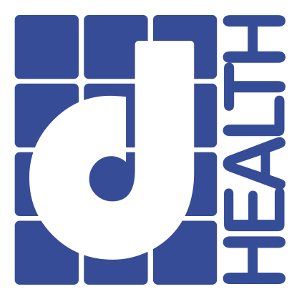Tuesday (May 6), Day 1
09:00 – 10:30
Track 1 – Room Nr. 9![]()
Cybersicherheit im Gesundheitswesen
BMSGPK & Health CERT
R. Scharinger, F. Hoheiser-Pförtner
Cybersicherheit im Gesundheitswesen
Status Quo, Herausforderungen und Lösungen
Diese Session spannt einen Bogen beginnend mit der aktuelle Cybersicherheitslage im Gesundheitswesen samt Fragen der digitalen Souveränität, über das Austrian Health CERT, bis hin zu konkreten Sicherheitslösungen im Krankenhausbereich. Im Anschluss an 3 Vorträge findet eine 10-minütige Diskussion mit Fragen aus dem Auditorium statt.
Moderator:
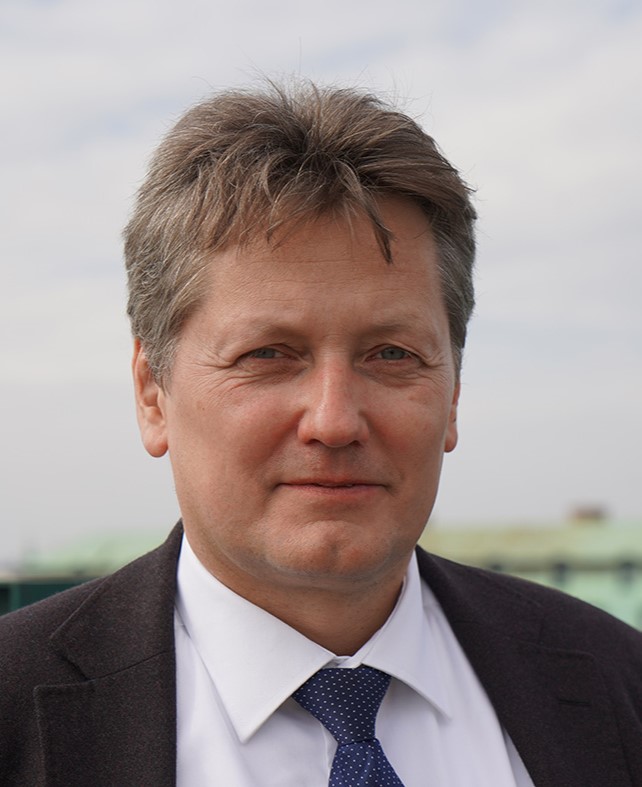 |
Robert Scharinger Leiter der Gruppe Gesundheitstelematik und Förderwesen, Bundesministerium für Arbeit, Soziales, Gesundheit, Pflege und Konsumentenschutz |
Session Keynote (20 min + 5 min Diskussion):
| Josef Pichlmayr IKARUS Security Software GmbH |
Wenn Risiko zur Gefährdung wird – digitale Souveränität dringlicher denn je |
Vorträge:
| Martin Habermayer & Markus Hoffmann Austrian Health CERT |
Austrian Health CERT (20 min + 5 min Diskussion) |
| Peter Brillinger & Manuel Nedbal x-tention |
Healthcare Native Security Operations Center (25 min + 5 min Diskussion, Partnerbeitrag) |
Track 2 – Room Nr. 1![]()
eHealth Strategie - Barometer
Gesundheitsfonds Steiermark & LIV
B. Matiz, A. Huber
eHealth Strategie - Barometer
Umsetzung der eHealth-Strategie Österreich im Rahmen der Zielsteuerung
Die von den Systempartnern Bund, Länder, Sozialversicherung gemeinsam erarbeitete und beschlossene eHealth-Strategie Österreich ist der strategische Rahmen für die Digitalisierung im Gesundheitswesen. Die Strategie definiert die Vorhaben für die Umsetzung für die kommenden Jahre. Jetzt geht es darum, dass einerseits auf Länderebene die Vorhaben entsprechend umgesetzt werden und anderseits braucht es ein Monitoring zur Messung.
Moderatoren:
| Bernadette Matiz, MAS Stabsstellenleiterin Öffentlichkeitsarbeit & Digitalisierung, Gesundheitsfonds Steiermark |
|
| MMag. Dr. Andreas Huber Zielsteuerungskoordinator; Institutsvorstand LIV Tirol |
Vorträge:
| Andreas Huber Landesinstitute für integrierte Versorgung Tirol Bernadette Matiz |
Angabe folgt. |
| Christoph Hörhan Hörhan Strategy Consultants GmbH |
Zauberformel eHealth. (10 min, Partnerbeitrag) |
| Alexander Kollmann Land Salzburg; Gesundheitsplanung und landeseigene Versorgungseinrichtungen |
Angabe folgt. |
| Michael Felli Stadt Wien |
Angabe folgt. |
| Anja Laschkolnig Gesundheit Österreich GmbH |
Angabe folgt. |
Track 3 – Room Nr. 8![]()
Scientific Session #1 - AI, LLMs and Digital Twins
Chairs:
J. Smeddinck, Á. Vathy-Fogarassy
Scientific Session #1
AI, LLMs and Digital Twins
Chairs: Jan Smeddinck, Ágnes Vathy-Fogarassy
Presentations:
- Enhancing Malignancy Detection and Tumor Classification in Pathology Reports: A Comparative Evaluation of Large Language Models
Sabrina B. NEURURER, Hasan TAHA, Helmut MUEHLBOECK, Christoph HICKMANN, Patricia GSCHEIDLINGER, Stefan RICHTER, Martin DANLER, Werner O. HACKL, Marko UEBEREGGER, Marco SCHWEITZER and Bernhard PFEIFER - Development of a Synthetic Oncology Pathology Dataset for Large Language Model Evaluation in Medical Text Classification
Werner O. HACKL, Sabrina B. NEURURER, Stefan RICHTER, Hasan TAHA, Helmut MUEHLBOECK, Christoph HICKMANN, Patricia GSCHEIDLINGER, Martin DANLER, Marco SCHWEITZER, Marko UEBEREGGER and Bernhard PFEIFER - LLM-Driven Adjustments in Serious Games: A Feasibility Analysis
Ivana MOSTACHETTI, Andrea VITALI, Daniele REGAZZONI, Caterina RIZZI and Giovanni Pietro SALVI - Exploring the Potential of Non-Proprietary Language Models for Analysing Patient-Reported Experiences
Kerstin DENECKE - Acceptance and Usage of AI Applications in Health-Focused NGOs
Franziska HAUER, Maximilian SCHULTZ, Sonja HAUG and Karsten WEBER - From Concept to Practice: Unlocking the Potential of Digital Twins in Clinical Engineering
Jasmina LOZANOVIC and Maja PETROVIC
Tuesday (May 6), Day 1
10:30 – 11:00
Coffee Break
Tuesday (May 6), Day 1
11:00 – 12:30
Opening Session
Opening address: State Secretary Ulrike Königsberger-Ludwig (Ministry of Social Affairs, Health, Care and Consumer Protection)
Opening Keynote: Elina Drakvik (Sitra) – “European Health Data Space – catalysing digital health innovation“
Opening Keynote
European Health Data Space – catalysing digital health innovation
Speaker:
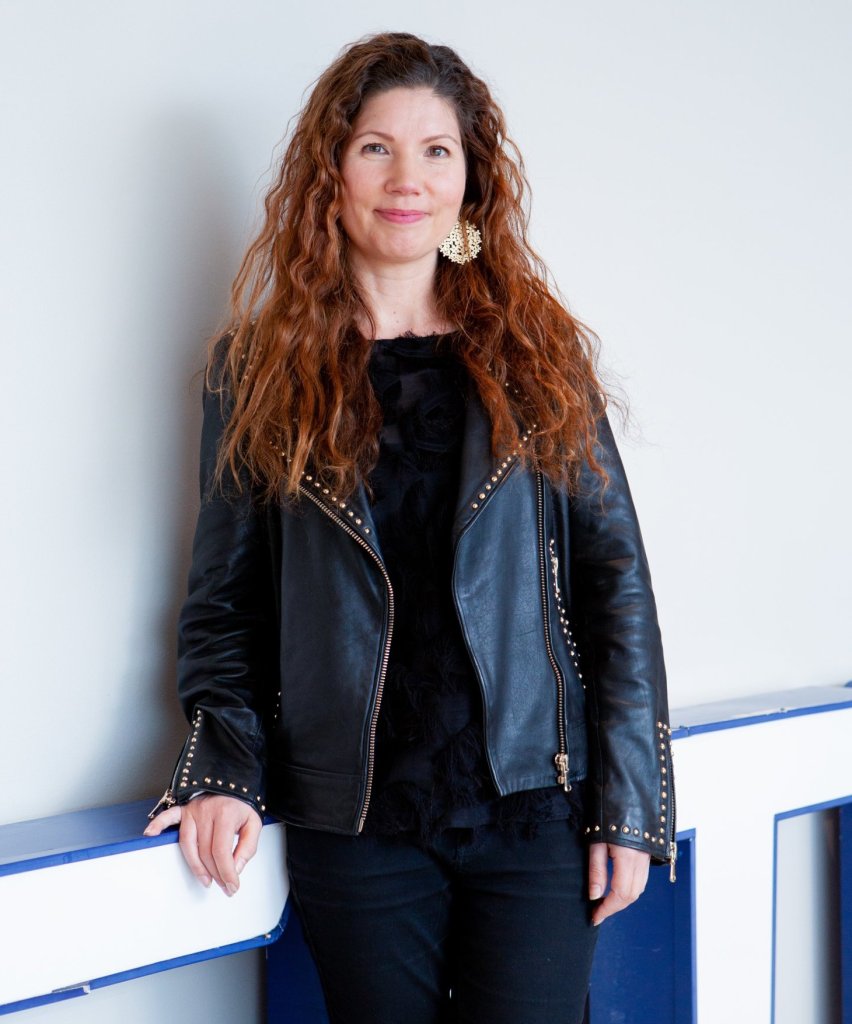
Elina Drakvik
Senior Lead,
Sitra
Bio:
Elina Drakvik works as a Senior Lead at Sitra, the Finnish Innovation Fund, and its Future Wellbeing Solutions Programme. She leads the joint action on the secondary use of health data, TEHDAS2, which supports the implementation of the European Health Data Space (EHDS) Regulation. Driving digital health, innovations and impact in cooperation with international partners and ecosystems as well as creation of new collaboration opportunities are at the core of her work. Prior to joining Sitra she has led various European multistakeholder projects and gathered experience in research funding, societal impact and innovations from Karolinska Institutet and Stockholm University in Sweden as well as Research Council of Finland. She will showcase the lessons learned from Finland’s experiences in secondary use of health data and shed light on the developments around European Health Data Space in the context of the TEHDAS2 Joint Action.
Tuesday (May 6), Day 1
12:30 – 13:30
Lunch Break
Tuesday (May 6), Day 1
13:30 – 15:00
Geschäftsmodell dHealth - Mythos oder Realität?
Gesundheit Österreich GmbH
H. Ostermann
Geschäftsmodell dHealth - Mythos oder Realität?
Die Hoffnungen an dHealth als Zukunftsbranche liegen hoch: Nicht nur ist es unbestritten, dass Gesundheit in unseren Gesellschaften als maßgeblicher Bereich der (sozialen) Daseinsvorsorge und zugleich Motor für wirtschaftliche Aktivitäten an Bedeutung zunimmt, gleichzeitig wird auch der Digitalisierung das Potenzial zugesprochen, die damit verbundenen personellen und finanziellen Herausforderungen zu meistern und zugleich bessere Lösungen aber auch Zugänglichkeit für die Versorgung zu bieten. Aus theoretischer Sicht also eine Win-Win-Win für die zu versorgende Bevölkerung, Leistungsanbieter und Systemsteuerung. Nichtsdestotrotz ist in Europa und auch Österreich – anders als in anderen Branchen – noch keine weitreichende Durchdringung der Dienstleistungserstellung mit digitalen Anwendungen zu verzeichnen und viele zunächst erfolgsversprechende Lösungen scheitern zuerst in der Inanspruchnahme und in weiterer Folge wirtschaftlich.
Die Session untersucht das Geschäftsmodell dHealth aus wissenschaftlich-analytischer Sicht, aus Sicht der translationalen Forschungs- und Wirtschaftsförderung sowie aus Unternehmenssicht.
Es moderiert Herwig Ostermann - 4 Präsentationen werden gefolgt von einer 25-30 minütigen Diskussion.
Moderator:
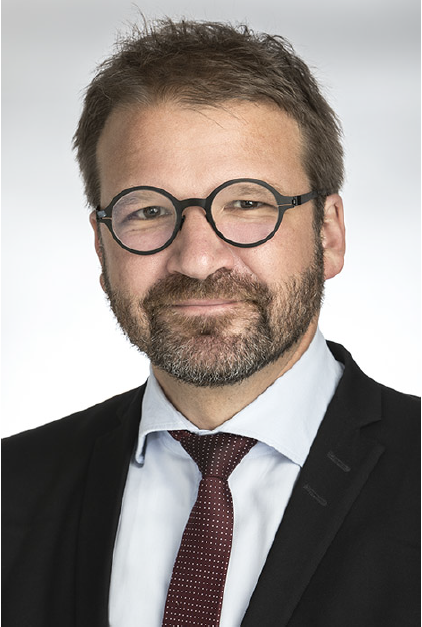 |
ao. Univ.-Prof. Dr. Herwig Ostermann Geschäftsführer, Gesundheit Österreich GmbH Associate Professor, UMIT Tirol |
Vorträge (je 15 min):
| Anne Busch FH Wiener Neustadt |
Sicht der Wissenschaft (Arbeitstitel) |
| Michaela Topolnik EIT Health |
Sicht der translationalen Forschung (Arbeitstitel) |
| Eva Czernohorszky Wirtschaftsagentur Wien |
Sicht der Wirtschaftsförderung (Arbeitstitel) |
| Fredrik Debong hi.health |
Sicht der Praxis (Arbeitstitel) |
Track 2 – Room Nr. 1![]()
ELGA News
ELGA GmbH
S. Sabutsch
ELGA News
In dieser Session erhalten Sie einen kompakten Überblick über aktuelle Entwicklungen und Vorhaben rund um ELGA, e-Health Codierservices und den Paradigmenwechsel in der Gesundheitsdatenverarbeitung. Expertinnen und Experten der ELGA GmbH liefern Zahlen, Daten und Fakten zum Status quo und geben Ausblicke auf künftige Herausforderungen und Chancen. Neue Ansätze zur interaktiven Zusammenarbeit mit ELGA-Daten sowie praktische Einblicke in e-Diagnose, Medikationsplan und den e-Health Codierservice stehen ebenso im Fokus. Ein Bericht zum österreichischen „Patient Summary“ und dessen Harmonierung im europäischen Kontext rundet das Programm ab. Abschließend werden Anforderungen, Chancen und Herausforderungen des European Health Data Space (EHDS) für Österreich vorgestellt.
Moderator:
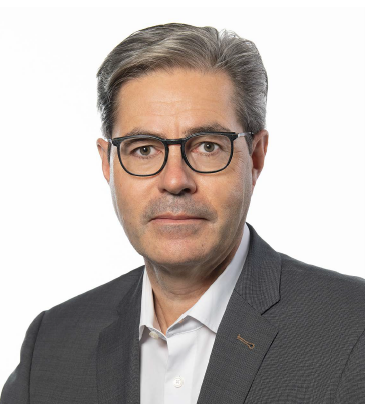 |
Dr. Stefan Sabutsch Geschäftsführung, ELGA GmbH |
Vorträge:
| Stefan Sabutsch ELGA GmbH |
ELGA - aktueller Stand (15 min) |
| Emmanuel Helm ELGA GmbH |
Paradigmenwechsel in der Gesundheitsdatenverarbeitung (15 min) |
| Moritz Buchmann ELGA GmbH |
e-Health Codierservice, Ausblick e-Diagnose & Medikationsplan (15 min) |
| Gabriel Kleinoscheg ELGA GmbH |
Patient Summary in Österreich und über die Grenzen hinaus (10 min) |
| Helene Prenner ELGA GmbH |
EHDS in Österreich: Anforderungen, Chancen und Herausforderungen (20 min) |
Abschließend folgt eine 15-minütige Diskussion mit allen Vortragenden und dem Publikum.
Track 3 – Room Nr. 8![]()
Scientific Session #2 - Machine Learning, AI and Telehealth - Finals of the Student Competitions
Chairs:
D. Hayn, B. Pfeifer
Scientific Session #2
Machine Learning, AI and Telehealth - Finals of the Student Competitions
Chairs: Dieter Hayn, Bernhard Pfeifer
Presentations:
- Federated Learning for Healthcare: Class Imbalance Mitigation and Feature Drift Detection
Jennifer ANDRES, Hannes HILBERGER, Sten HANKE and Markus BÖDENLER - Comparison of Algorithms for Artifact Detection of Perioperative Blood Pressure Data: A Retrospective Analysis
Melanie Maria KUHRN, Mathias MALECZEK, Daniel LAXAR, Lorenz KAPRAL, Yannic-Tomas ABULESZ, Christoph DIBIASI and Oliver KIMBERGER - [Cancelled]
REVIVAL - Digital PREMs Data Collection from Cancer Survivors
Dominic WILLI, Karin KENNEL, Kerstin DENECKE and Serge BIGNENS
- Applying Machine Learning to Gait Analysis Data for Hip Osteoarthritis Diagnosis
Anna GHIDOTTI, Daniele REGAZZONI, Caterina RIZZI and Gennaro FIORENTINO - A Machine Learning-Based Risk Assessment Model for Poor Postoperative Pain Outcome
Claudia KAGERER, Stefanie JAUK, Diether KRAMER, Alexander AVIAN, Thomas NEUMANN, Maria SCHLÖGL and Andreas SANDNER-KIESLING - Classifying Type 2 Diabetes Using N-Glycan Profiling and Machine Learning Algorithms
Veronika GOMBAS, Rebeka TOROK, Marta VITAI, Laszlo KORANYI, Gabor JARVAS, Andras GUTTMAN and Agnes VATHY-FOGARASSY
Tuesday (May 6), Day 1
15:00 – 15:15
Coffee Break
Tuesday (May 6), Day 1
15:15 – 16:45
Track 1 – Room Nr. 9![]()
AI in Austria 2025: Einblick und Ausblick
Future Health Lab
S. Meryn
AI in Austria 2025: Einblick und Ausblick
Einer Einleitung durch die Moderation folgen 4 Präsentationen. Die Session wird mit einer abschließenden Diskussion mit dem Auditorium beendet.
Moderatoren:
 |
Mag. Dr. Alexander Degelsegger-Márquez Head of Department for International Affairs, Policy, Evaluation and Digitalisation (IPED) & Head of Digital Health and Innovation, Gesundheit Österreich GmbH |
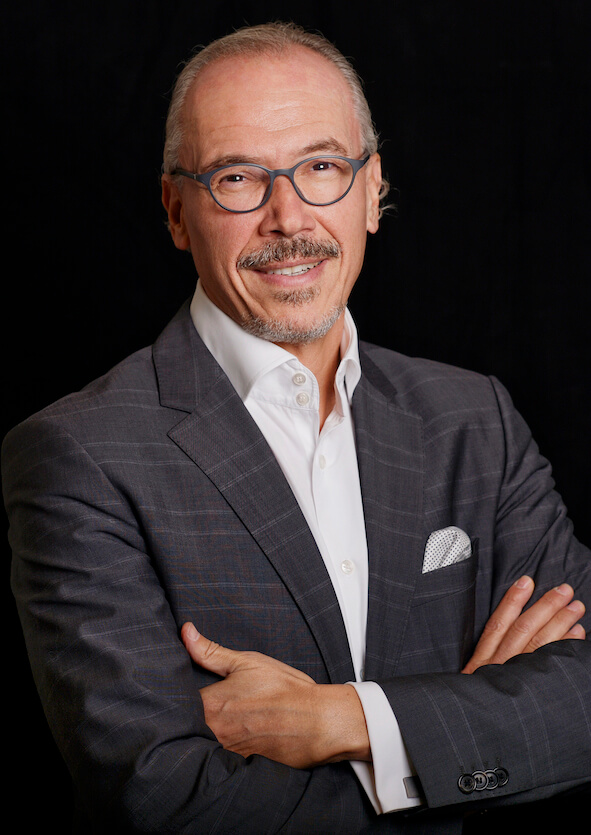 |
em.Univ.Prof.Dr. Siegfried Meryn Facharzt für Innere Medizin, Medizinische Universität Wien; Gesundheitsexperte und Vorsitzender, ORF-Gesundheitsbeirat |
Einleitung:
| Alexander Degelsegger-Márquez Gesundheit Österreich GmbH |
AI Mapping und AI Act Austria |
Vorträge:
| Diether Kramer FH Joanneum, eHealth |
KI und klinische Entscheidungsunterstützung: Wie kommt das im klinischen Alltag an |
| Günter Klambauer LIT AI Lab & ELLIS Unit Linz, Johannes Kepler Universität Linz |
KI-Systeme und Sprachmodelle für Medizin und Gesundheitswesen |
| Georg Langs Comprehensive Center for AI in Medicine, MedUni Wien |
KI: Brücke zwischen Klinik und Forschung |
| Ulrike Attenberger Department für Radiologie, Medizinische Universität Wien |
Es darf konkret werden |
Track 2 – Room Nr. 1![]()
Gesundheitsportale in Österreich - Einblicke und Ausblicke
Wiener Gesundheitsverbund
M. Binder
Gesundheitsportale in Österreich - Einblicke und Ausblicke
Die Zeit für die flächendeckende Einführung von Gesundheitsportalen ist gekommen – doch zwischen Ankündigungen und tatsächlicher Umsetzung besteht weiterhin eine erhebliche Diskrepanz. Bürgerinnen fordern solche Systeme dringend, um die Kommunikation mit Gesundheitseinrichtungen effizienter, schneller und transparenter zu gestalten. Gleichzeitig müssen auch die Gesundheitseinrichtungen ihre Interaktion mit den Nutzerinnen grundlegend optimieren und an aktuelle Bedürfnisse anpassen. Bestehende Gesundheitsplattformen, wie etwa ELGA, haben bereits bedeutende Fortschritte in Richtung Kundenorientierung erzielt. Dennoch sind die Erwartungen an eine raschere und vor allem spürbarere Entwicklung hoch – und werden immer drängender. In dieser wissenschaftlich fundierten Diskussion beleuchten wir die Chancen, Herausforderungen und Lösungsansätze für die Zukunft der digitalen, nutzer*innenzentrierten Gesundheitskommunikation in Österreich.
Moderator:
 |
Dr. Michael Binder Medizinischer Direktor (CMO), Wiener Gesundheitsverbund |
Vorträge (je 15 min & Diskussion):
| Christian Scheibböck Magistratsdirektion der Stadt Wien, Geschäftsbereich Organisation & Sicherheit, Gruppe Prozessmanagement und IKT-Strategie (MD-OS/PIKT) |
Die Wiener Gesundheitsplattform - aktuelle Herausforderungen |
| Katja Österreicher Vinzenz Kliniken Wien GmbH |
Hallo Gesundheit - vom Need der Patient*innen zur anwenderorientierten digitalen, barrierefreien Lösung durch Co-Creation |
| Wolfgang Huf Wiener Gesundheitsverbund, Klinik Hietzing |
Gesundheitsportale - Perspektiven aus der Klinik |
|
Birte Schmitz & David Maurer |
Smarte Gesundheitsportale - Von der digitalen Selbstvermessung zur Therapieverbesserung durch Interoperabilität (Partnerbeitrag) |
Track 3 – Room Nr. 8![]()
Scientific Session #3 - Interoperability, EHRs and Research Infrastructures
Chairs:
G. Duftschmid, H. Storf
eScientific Session #3
Interoperability, EHRs and Research Infrastructures
Chairs: Georg Duftschmid, Holger Storf
Presentations:
- Towards Improved Trial Recruitment Through Patient/Citizen-Driven Data Donation of Electronic Health Records in Austria
Sofia OVEJERO, Carolina BEZZI, Saskia HUBER, Julia HARRER, Aaron LAUSCHENSKY and Klaus DONSA - FOX BOXes as Fundamental Enablers for EHR-Standardised Data Sharing - Building the Austrian Health Data Donation Space
Klaus DONSA, Patrick MANGESIUS, Aaron LAUSCHENSKY, Martin BAUMGARTNER, Nikola TANJGA, Stefan BEYER, Günter SCHREIER and Karl KREINER - Extracting LOINC Codes from a Laboratory Information System’s Index: Addressing Semantic Interoperability with Web Scraping
Benjamin KINAST, Joshua WIEDEKOPF, Hannes ULRICH and Björn SCHREIWEIS - Harmonization of Electronic Medical Records for Federated Learning: Addressing Challenges in International Healthcare Collaborations
Lena LORENZER, Michael SCHREMPF, Stefanie JAUK, Stefan KALABAKOV, Gladys PIERRI, Kátia Mitiko Firmino SUZUKI, Hilton Vicente CÉSAR, Diether KRAMER, Paulo MAZZONCINI DE AZEVEDO-MARQUES and Peter RAINER - Personal Health Data Spaces in Decentralized Content-Addressable Storage Networks: An Alternative and Vital Contribution to Health Record Banks
Toomas KLEMENTI, Igor BOSSENKO and Gunnar PIHO - Assuring End-to-End Data Quality for Analytics on FHIR
Jasmin ZIEGLER, Clara FISCHER, Paul-Christian VOLKMER, Marcel ERPENBECK, Jonathan M. MANG, Thomas GANSLANDT, Hans-Ulrich PROKOSCH and Christian GULDEN
Tuesday (May 6), Day 1
16:45 – 17:00
Coffee Break
Tuesday (May 6), Day 1
17:00 – 18:30
Plenary Session
Chairs: Martin Baumgartner (AIT), Karl Kreiner (AIT)
Keynote 2: David Asturiol (European Commission) – “European Health Data Space – Implementation phase“
Keynote 3
European Health Data Space – Implementation phase
Speaker:
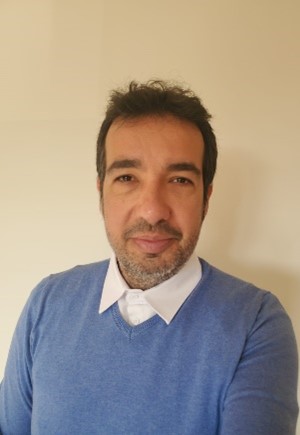
David Asturiol, PhD
Policy Officer
European Commission
Bio:
David Asturiol is a policy officer at the European Commission's Directorate-General for Health and Food Safety (DG SANTE), where he focuses on the implementation of the European Health Data Space (EHDS), particularly on the secondary uses of health data. He has also worked on the coordination of the European Reference Networks for Rare Diseases and contributed to the implementation of the European Union Digital COVID-19 Certificate.
With over 15 years of research experience in chemical toxicity, molecular modelling, and data science, Mr. Asturiol has authored more than 30 peer-reviewed publications. His expertise includes developing computational models to promote and advance predictive toxicology.
Keynote 3: Hannes Werthner (emerit. TU Vienna) – “Digital Humanism – About AI and Digitalization“
Keynote 2
Digital Humanism – About AI and Digitalization
Speaker:
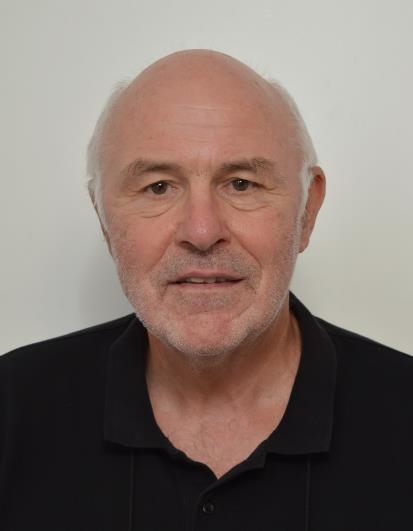
Univ.-Prof. i.R. Dipl.-Ing. Dr.techn. Hannes Werthner
Professor Emeritus
Technical University of Vienna
Bio:
Hannes Werthner is a retired Computer Science Professor at the TU Wien, Austria, where he also served as the Dean of the faculty of Informatics. Prior to joining TU Wien, he had professorships at Austrian and international Universities. His research is in several fields such as Decision Support Systems, E-Commerce, E-Tourism and Recommender Systems. Besides research and teaching he is active in starting new initiatives, such as the Vienna PhD School of Informatics and the i2c (Informatics Innovation Center). In the area of E-Tourism, the International Federation for IT and Tourism (IFITT) grants the “Hannes Werthner Tourism and Technology Lifetime Achievement Award” to outstanding academics and/or professionals in the field.
He carefully observes how computer science and information technology are changing the world and us. This is his motivation for Digital Humanism, where he organized the Vienna Workshop of Digital Humanism, and he initiated the Vienna Manifesto in 2019. As a key figure of the initiative he co-edited the two books “Perspectives on Digital Humanism” and “Introduction to Digital Humanism”, with over one million downloads.
Tuesday (May 6), Day 1
18:30 – 19:00
Change of Venue
Tuesday (May 6), Day 1
19:00 – 22:30
Networking Event
Networking Event
Relaxed get-together after Day 1
Location: 10er Marie (Ottakringer Straße 222-224, 1160 Vienna)
The networking event is the perfect opportunity to get to know the conference attendees in a relaxed setting after a long and intensive day of presentations, workshops and information. This event is at an authentic and traditional kind of Austrian restaurant (called “Heuriger”). This is your chance to talk to everyone, have a glass of wine, eat delicious traditional meals (e.g. schnitzel, pork roast, sauerkraut, …) and recharge for the next day. Do not miss it, this is generally considered one of the highlights! Here is an impression from a past conference:

Please note: You have to additionally register for this networking event. This is not included in the normal registration fee and not done automatically when registering for the conference.
There will be a free organised transport from the conference venue to the restaurant. Transportation back home afterwards to your accomodation is done individually.
All information can be found here: FAQs
Looking forward to seeing you there!
Day 2
Wednesday, May 7th, 2025
Wednesday (May 7), Day 2
08:45– 10:15
Der EHDS - Stakeholder-Erwartungen
Gesundheit Österreich GmbH & AUVA
A. Degelsegger-Márquez, T. Mück
Der Europäische Gesundheitsdatenraum - Stakeholder-Erwartungen
Nach einer Vorstellung der EHDS-Verordnung durch das BMASGPK folgen Inputs aus einer Reihe relevanter Stakeholder-Gruppen, die zu ihren Erwartungen hinsichtlich EHDS berichten werden: aus Sicht der Patient:innen, der Forschung, der Ethik und der Privatwirtschaft. Den Vorträgen folgt eine abschließende Diskussion mit dem gesamten Panel und Fragen aus dem Publikum (20-30 min).
Moderatoren:
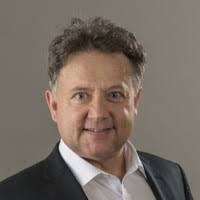 |
Prof. Dr. Thomas Mück Stellvertretender Generaldirektor, AUVA |
 |
Mag. Dr. Alexander Degelsegger-Márquez Head of Department for International Affairs, Policy, Evaluation and Digitalisation (IPED) & Head of Digital Health and Innovation, Gesundheit Österreich GmbH |
Session Keynote (15 min + 5 min Diskussion):
| Patrick Rasztovics Bundesministerium für Arbeit, Soziales, Gesundheit, Pflege und Konsumentenschutz |
Die EHDS-Verordnung |
Vorträge (je 10 min):
| Franz Tschida Future Health Lab |
Der EHDS aus Patientensicht - Inputs aus einem Beteiligungsprozess |
| Ruth Ladenstein St. Anna Kinderkrebsforschung |
Der EHDS aus Sicht der Krebsforschung |
| Maria Kletecka-Pulker LBI Digital Health and Patient Safety & Universität Wien |
Ethische Reflexionen zum EHDS |
| Bernhard Mraz Novartis |
EHDS - die Sicht der forschenden Pharmaindustrie (Partnerbeitrag) |
Track 2 – Room Nr. 1![]()
Digital Twins &
Patient Journey
Österreichische Ärztekammer
S. Bunda
Digital Twins & Patient Journey
Wie können neue, innovative Patientenwege aussehen?
In die Computersimulationen als Teil der personalisierten Medizin setzen Wissenschaftler und Ärzte große Hoffnungen. Digitale Zwillinge ermöglichen eine präzisere Diagnose und individuelle Behandlung durch Simulationen und datenbasierte Einblicke. Die so genannte "Patient Journey" unterstützt die lückenlose Patientenversorgung. Sie ist Voraussetzung dafür, dass Patienten bestmöglich medizinisch behandelt und betreut werden.
Moderator:
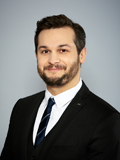 |
Mag. Sascha Bunda Leitung Öffentlichkeitsarbeit, Österreichische Ärztekammer |
Vorträge (je 15 min & Diskussion):
| Rudolf Knapp Österreichische Ärztekammer |
Patient Journey aus Sicht des intramuralen Bereichs |
| Alexander Moussa Österreichische Ärztekammer |
Patient Journey aus Sicht des extramuralen Bereichs |
| Franz Leisch Praevenire & ÖGTelemed |
Datensilos, Aufbau von Registern und die e-Diagnose |
Abschließend folgt eine 35-minütige Podiumsdiskussion zum Thema "Wie können neue, innovative Patientenwege aussehen?" mit folgenden Teilnehmenden:
- Dietmar Bayer (Österreichische Ärztekammer & ÖGTelemed)
- Alexander Kollmann (Land Salzburg)
- Angelika Widhalm (Bundesverband Selbsthilfe Österreich (BVSHOE))
- Stefan Sabutsch (ELGA GmbH)
- Hubert Wackerle (IT-SV)
Track 3 – Room Nr. 8![]()
Scientific Session #4 - Decision Support, Machine Learning and AI
Chairs:
M. Baumgartner, S. Neururer
Scientific Session #4
Decision Support, Machine Learning and AI
Chairs: Martin Baumgartner, Sabrina Neururer
Presentations:
- It’s All About Specific Features: Development of Prediction Models for Key Geriatric Risks Across Three Hospital Providers
Julian GUTHEIL, Philip STAMPFER and Diether KRAMER - Development of a Patient Dashboard in a Clinical Decision Support System for Primary Care
Michaela Christina NEFF, Jannik SCHAAF, Dania SCHÜTZE and Holger STORF - Knowledge Uncertainty Estimation for Reliable Clinical Decision Support: A Delirium Risk Prognosis Case Study
Adrian LINDENMEYER, Sai VEERANKI, Stefan FRANKE, Thomas NEUMUTH, Diether KRAMER and Daniel SCHNEIDER - [Cancelled]
A Neural Network for Atrial Fibrillation Detection via PPGRishad HOWLADER, Monika JURGEC, Andrea SCHIMANKO, Christopher DOHNAL, Anne BUSCH, Martin BAUMGARTNER, Fabian WIESMÜLLER, Aaron LAUSCHENSKY, Dieter HAYN and Günter SCHREIER - Outpatient Scheduling with Genetic Algorithm: The Power of Mutation Operators
Veronika GOMBÁS, Péter Bálint SCSIBRÁN, Tibor DULAI and Ágnes VATHY-FOGARASSY - [Cancelled]
Developing a User-Centric System for Hospital-Onset Bacteremia Risk Assessment and Visualization: An Integrated Requirements Analysis ApproachAnna Thalea HOOGESTRAAT, Tadea SCHMITZ, Alexander V, Tom BAUMGARTL, Felix MÜLLER, Pascal BIERMANN, RISK PRINCIPE Study G, Tatiana VON LANDESBERGER and Antje WULFF
Wednesday (May 7), Day 2
10:15- 11:00
![]()
![]()
Coffee Break & Scientific Session #5: Poster Session
Scientific Session #5
Poster Session
Posters:
- Adherence to Guidelines Supported by Process Mining
Klaus ARTHOFER - A SMART on FHIR Conformant Infrastructure for Recording Patient Reported Outcomes Based on Open-Source Components
Yannick KÖRBER, Florian KATSCH, Tanja STAMM and Georg DUFTSCHMID - Identifying Caregiver Needs for EHR Functionalities: Insights from a Comprehensive Large Scale Nationwide Study
Daniela PICHLER, René BARANYI and Thomas GRECHENIG - Standardizing Heat-Related Diagnoses for Predictive Modeling in Healthcare
Jakob THIEL, Martin SEDLMAYR and Elisa HENKE - Climate Change, Vectors, and Public Health: Predicting Future Disease Risks in the Federal State Tyrol
Alexandra SCHWAIGER, Sabrina NEURURER, Werner O. HACKL, Hasan TAHA, Marco SCHWEITZER, Martin DANLER and Bernhard PFEIFER - Design of a Decision Support System for Chronic Pain Management to Support and Empower Nursing Professionals
Daiana Denisa DEMARCSEK, Barbara KRÖBER, Stefanie SCHRIEBL, Stephanie FREYDL, Bernhard NEUMAYER, Angela LIBISELLER, Philip STAMPER and Stefan HOCHWARTER - Requirements for an Instrument to Identify Context Factors for Enhancing Context Sensitivity in CDSS
Katharina SCHULER, Ian-C. JUNG, Maria ZERLIK, Martin SEDLMAYR and Brita SEDLMAYR - Virtual Reality with Moodle for Training in Telemedicine
Andrea CATTANEO, Anna SAVODELLI, Amin AMROUSSI, Maria Sofia CAVALLO, Debora PESENTI, Maria RAGAZZI, Cristian ROTA and Andrea VITALI - cMOOC Recommendations to Enhance AI Literacy Among Healthcare Professionals
Bianca BUCHGRABER-SCHNALZER, Marco TILLI, Rupert BEINHAUER, Waltraud JELINEK-KRICKL, Raphaele RAAB, Klaus LICHTENEGGER, Michael HAMMER, Gernot REISHOFER and Helmut RITSCHL - Integration of Digital Tools into Clinical Reasoning Education: A Rapid Review
Elske AMMENWERTH and Laura ZWAN - Nursing Informatics Education: Needs Analysis and Curriculum Design
Elske AMMENWERTH, Hadas LEWY, Walter DE CARO and Vered ROBINZON - Real-Time Communication Infrastructure for Mixed Reality in Home Care: A Comparative Case Report of Three Approaches
Cornelia SCHNEIDER, Philipp KOLMANN and Philipp RAMEDER - Shared Achievements: Exploring the Design of Gameful Collaborative Elements and Fostering Social Relatedness through Team Effort Contributions in a Social Physical Activity Application
Faith YOUNG, Dmitry ALEXANDROVSKY, Daniela WURHOFER, Eva-Maria KRAH and Jan D. SMEDDINCK - Active Waiting: Facilitating Short Bouts of Exercise During Idle Times for Promoting Physical Activity in Daily Living
Daniela WURHOFER, Magdelena MAISLINGER, Eva-Maria KRAH, Stefan T. KULNIK, Gunnar TREFF, Michael NEUDORFER, Faith YOUNG and Josef NIEBAUER - Evaluation of the “ActiveWaiting App”: A Waitlist-Control Pilot Study
Andrea GREISBERGER, Daniela WURHOFER, Alireza FATEHI, Jan David SMEDDNICK and Stefan Tino KULNIK - Mobile Health Technology in Physiotherapy and Occupational Therapy for People with Multiple Sclerosis: An Exploratory Field Study
Stefan Tino KULNIK, Belinda BÖHM, Isabel HÖPPCHEN, Antonia LINDNER, Lisa SEIRINGER, Daniela WURHOFER, Ferdinand OTTO and Peter WIPFLER - Using a Logic Model to Explore Seniors' Interactions with a Coaching Robot
Michelle BINDEL, Markus SCHWAIGER, Elske AMMENWERTH and Cornelia SCHNEIDER - A Learning Agent for Stress Multi-Level Diagnostics, Personalised Stress Profiles and Interventions in the Work Context
Oliver JUNG, Mathias SCHMOIGL-TONIS, Christoph SCHRANZ, Beatrix Julia KUNAS, Anton-Rupert LAIREITER, Julian MEHLIS and Michael BEER - Application of Micro Design Patterns in Co-Design Workshops Using PROM Visualizations as an Example
Maria ZERLIK, Ian-C. JUNG, Katharina SCHULER and Caroline GLATHE - Empowering Nursing Care Through Digital Innovation
Renate NANTSCHEV, Eva ZOEBINGER, Angela LIBISELLER, Mirna BAN, Denise WILFLING and Katharina LICHTENEGGER
Wednesday (May 7), Day 2
11:00 – 12:30
EHDS - Privacy-Preserving Secondary Use
FH Technikum Wien & AIT Austrian Institute of Technology
S. Sauermann, K. Kreiner
EHDS - Privacy-Preserving Secondary Use
Great expectations and real-world lessons
High expectations surround the launch of the European Health Data Space (EHDS). By 2029, significant progress is expected to bring the EHDS to life across thousands of hospitals and medical practices throughout Europe. How can current and ongoing projects support its implementation? And what can we realistically expect in the coming years?
Moderators:
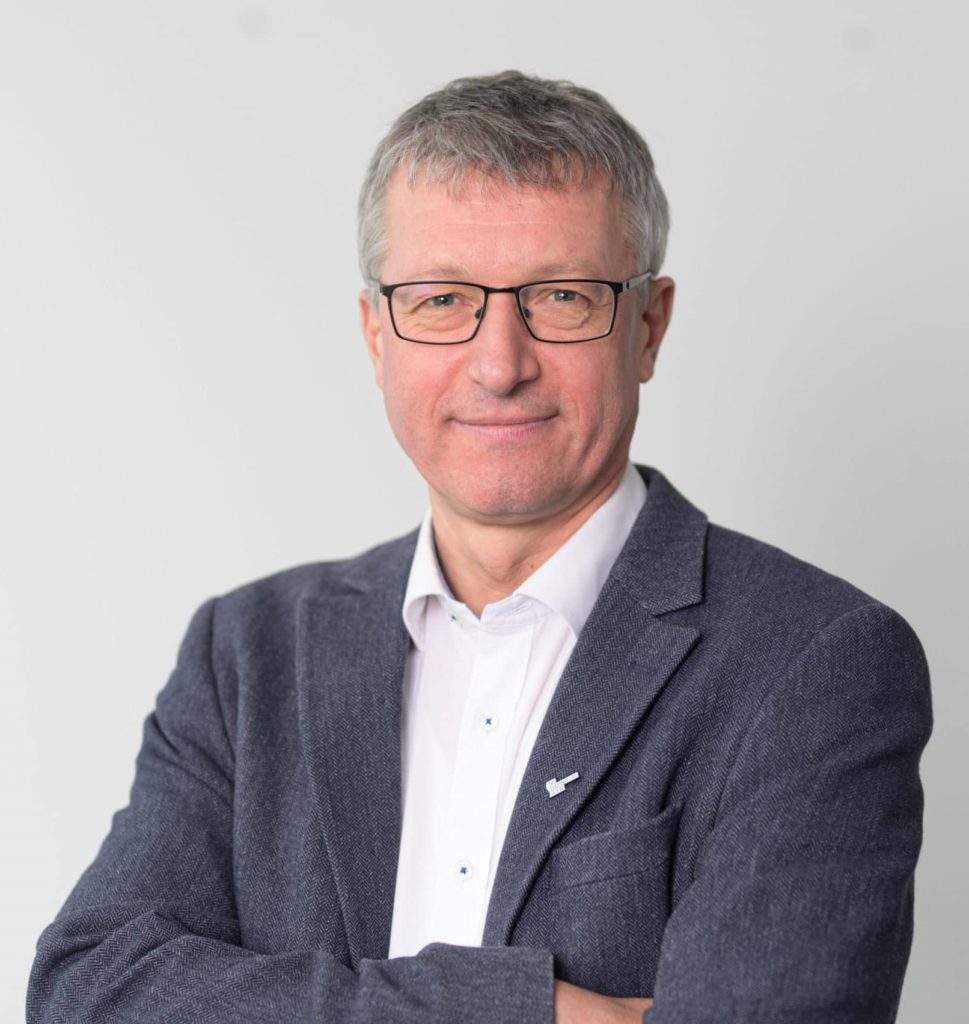 |
Stefan Sauermann Vice Rector; Program Director Medical Engineering & eHealth, UAS Technikum Vienna |
 |
Karl Kreiner Senior Research Engineer, AIT Austrian Institute of Technology |
Presentations (10 min each + 5 min discussion)
| Rudolf Mayer SBA Research |
Federated Learning for Privacy-Preserving Medical Data Analysis |
| Bruno Ristok C&S Computer und Software GmbH |
TEAM-X' approach for privacy-preserving secondary use |
| Klaus Donsa AIT Austrian Institute of Technology |
Data donation for secondary use in the flagship project Smart FOX |
| Stefan Sauermann UAS Technikum Vienna |
Secondary data use for lung cancer in the IDERHA project |
| Herwid Loidl IHE Austria |
What IHE already offers today for secure secondary data use. (Partner presentation) |
AI im Krankenhaus
Gesundheit Burgenland
F. Öller
Artificial Intelligence im Krankenhaus
Moderator:
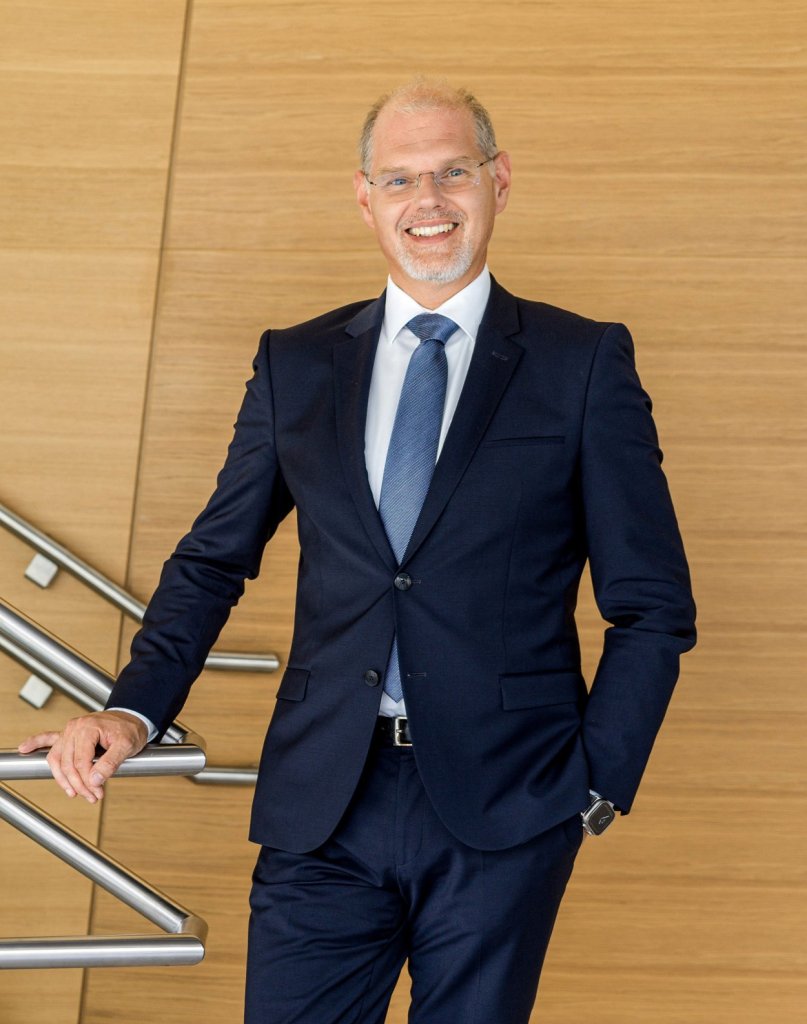 |
Franz Öller Kaufmännischer Geschäftsführer, Burgenländische Krankenanstalten- Gesellschaft |
Vorträge:
| Katharina Ladewig Robert Koch Institut, Berlin |
KI in der öffentlichen Gesundheitsforschung - Einblicke aus der Sicht eines Public Health Instituts |
| Magdalena Wekenborg Technische Universität Dresden, Else Kröner Fresenius Center for Digital Health |
Mensch-KI-Schnittstelle in der Medizin: Erfassen, Verstehen, Optimieren |
| Judith Schinerl Cancom |
Sichere Medikation: Künstliche Intelligenz in der Krankenhauspflege (Partnerbeitrag) |
| Harald Kittler Medizinische Universität Wien |
KI in der Dermatologie: Traum und Wirklichkeit |
Track 3 – Room Nr. 8![]()
Scientific Session #6 - dHealth in Health-associated Application Scenarios
Chairs:
E. Ammenwerth, A. Ziegl
Scientific Session #6
dHealth in Health-associated Application Scenarios
Chairs: Elske Ammenwerth, Andreas Ziegl
Presentations:
- Monitoring Respiratory Rehabilitation with YOLO Pose: Usability and Accuracy Assessment of a Mobile App for Spirometer Tracking
Davide FERRARI, Pietro BELOTTI, Andrea FORCELLA, Lorenzo LECCHI, Nicola SANA, Silvia MARIANI, Giovanni MARCHETTO and Andrea VITALI - Exploring Serious Games Within the Physio and Ergotherapeutic Usage: Insights into their Acceptance Based on Actual Applications
René BARANYI, Katharina WEINDL, Christoph AIGNER, Carina ARNBERGER, Dominik HOELBLING, Werner HOERNER and Thomas GRECHENIG - A Preliminary Evaluation of a VR Application for Associative Memory and Cognitive Rehabilitation
Prince AMPOFO, Andrea VITALI, Francesca MORGANTI, Caterina RIZZI and Daniele REGAZZONI - Needs Assessment for an Assistance System for the Visually Impaired and Blind in Climbing and Bouldering
Felicitas BRAUN, Jana STADLBAUER, Sonja HAUG and Viola SCHNEIDER - Establishing FHIR Appointment Management in a Daycare Unit for Eating Disorders
Angelika RZEPKA, Kerstin RUDOLF, Dalia HAEMMERLE, Kurt EDEGGER, Patrick MAYR, Christine BRUGGER, Nina BAUMGARTNER, Peter KASTNER and Günter SCHREIER - Telemedicine for Ketogenic Dietary Treatment in Epilepsy and Inherited Metabolic Diseases: Survey of Health Care Professionals
Alexander HÖLLER, Anna Katharina SCHÖNLAUB, Charlotte UHLISCH, Paul KLINGLER, Stefan WELTE, Bernhard PFEIFER, Günter SCHREIER, Sabine SCHOLL-BÜRGI and Anastasia MALE-DRESSLER
Wednesday (May 7), Day 2
12:30 – 13:30
Lunch Break
Wednesday (May 7), Day 2
13:30 – 15:00
Track 1 – Room Nr. 9![]()
Digital Health Start-Ups
LISAVienna & HTS
P. Mülner, P. Hainzl
Digital Health Start-Ups
Innovation made in Austria - Spotlights auf Startups aus Österreich
Die Life Science Cluster Human Technology Styria (HTS) und LISAvienna präsentieren innovative Digital Health Startups aus der Steiermark und Wien. Die ausgewählten Jungunternehmen zeigen, wie digitale Technologien die Gesundheitsversorgung effizienter, patientenorientierter und nachhaltiger gestalten können. Digital Health steht dabei für Innovationen an der Schnittstelle von Medizin, IT und Life Sciences. Die Session bietet einen kompakten Überblick über neue Lösungen für Prävention, Diagnose, Therapie und Patientenmanagement.
Moderation:
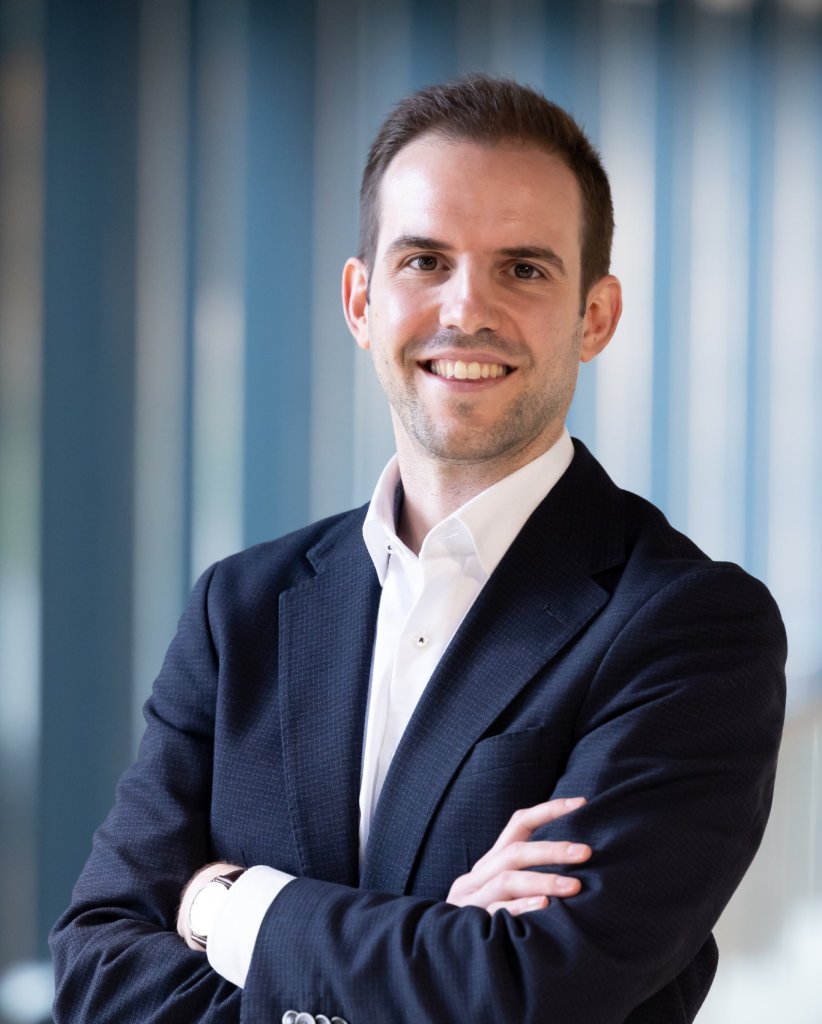 |
Pascal Mülner Stellvertretender Geschäftsführer, Human Technology Styria |
 |
Philipp Hainzl Geschäftsführer, LISAVienna |
Vorträge (je 10 min + 2-3 min Diskussion):
| Martin Woschank Lokahi Technology Systems FlexCo |
Von der Praxis ins Wohnzimmer: IoT-gestützte Physiotherapie im häuslichen Umfeld |
| Rainer Hofmann-Wellenhof e-derm-consult GmbH; Medizinische Universität Graz |
20 Jahre Teledermaotologie |
| Manuela Hod Ennocure GmbH |
Digitale Lösungen für chronische Wunden: Der Weg in eine personalisierte Zukunft |
| Stefan Kampusch AURIMOD GmbH |
Startup Pitch AURIMOD |
| Nikolaus Gasche Biome Diagnostics |
Startup Pitch: myBioma |
| Julie Sufana contextflow GmbH |
Startup Pitch: contextflow |
Onkologie & Digital Health
UMIT Tirol & telbiomed GmbH
B. Tilg, R. Modre-Osprian
Onkologie & Digital Health
Die Session beschäftigt sich mit der Nutzung von Digital Health in der Onkologie. Neben der Verbesserung von Diagnostik und Therapieoptimierung steht dabei auch die Effizienzsteigerung klinischer Prozesse und die medizinisch-pflegerische Nachsorge im Fokus. Die Automatisierung von Routineaufgaben und der Einsatz digitaler Entscheidungsunterstützungssysteme erleichtern die Arbeit der Ärzt:innen und der Pfleger:innen, indem sie relevante Informationen unmittelbar bereitstellen. Die Kombination von Digital Health und Onkologie signalisiert einen Paradigmenwechsel hin zu einer präziseren, personalisierten und effizienteren Patient:innenversorgung bei gleichzeitiger Verbesserung der Lebensqualität.
Moderatoren:
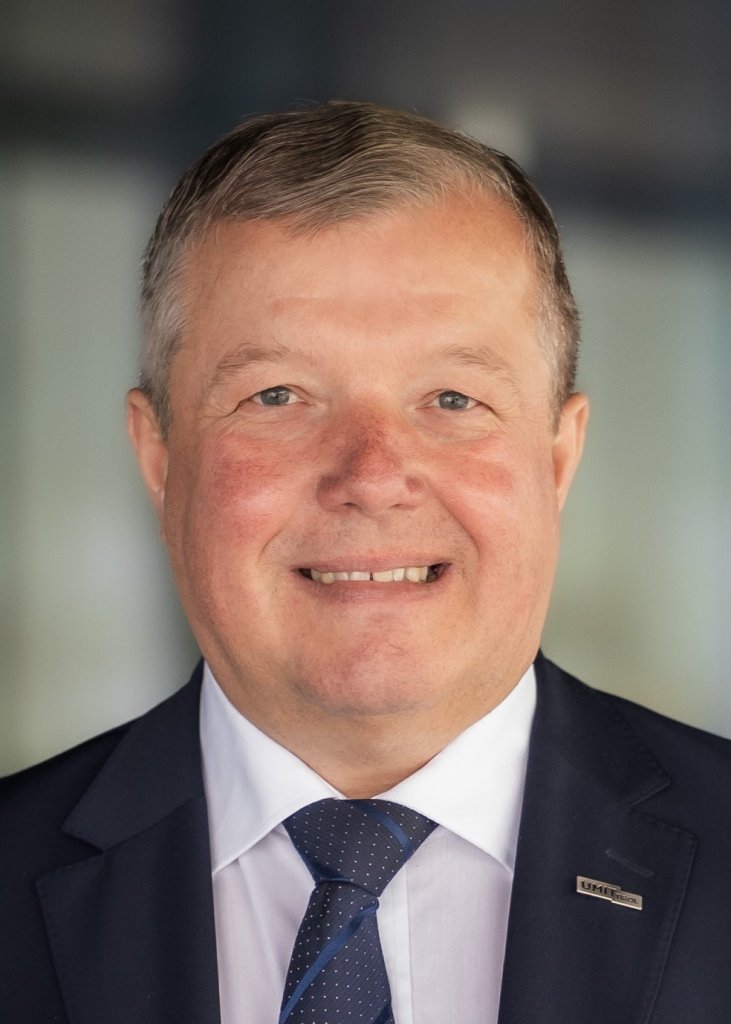 |
Univ.-Prof. DI Dr. Bernhard Tilg Universitätsprofessor für Medizinische Informatik, UMIT Tirol |
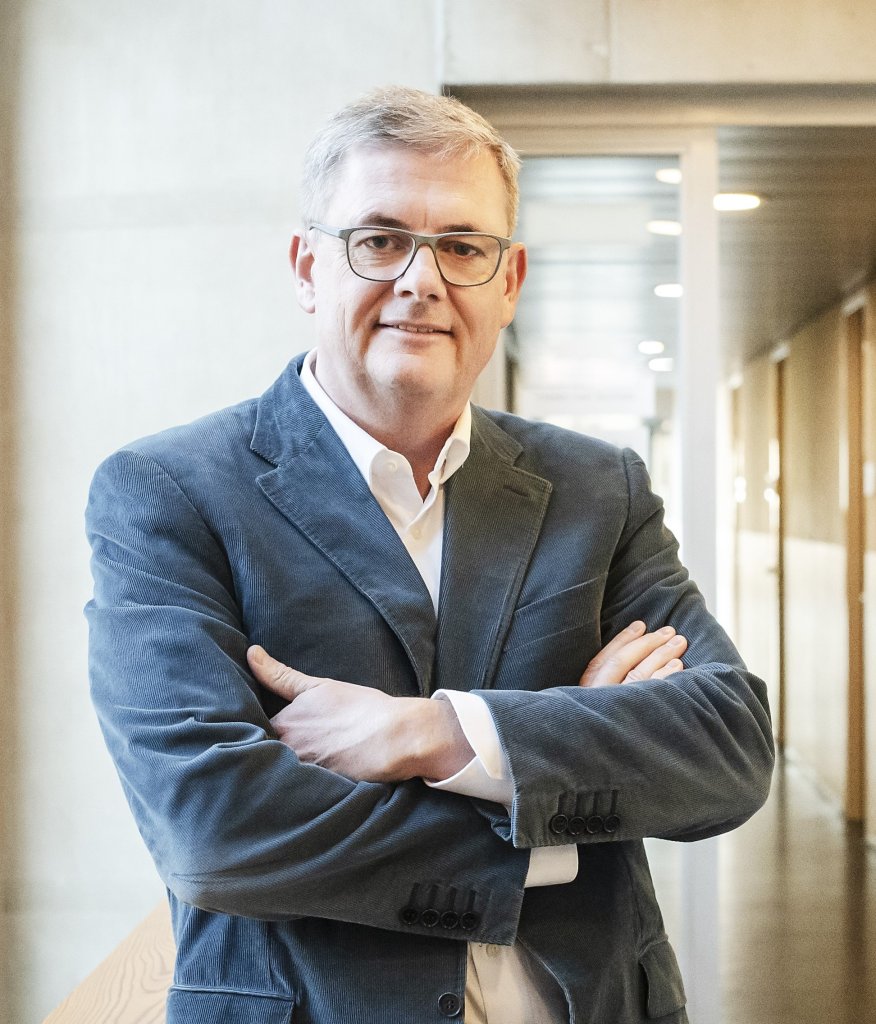 |
DI Dr. Robert Modre-Osprian Geschäftsführer, telbiomed GmbH |
Session Keynote (20 min):
| Ewald Wöll Ärztlicher Direktor / Leiter Innere Medizin KH Zams; Präsident der Österreichischen Gesellschaft für Hämatologie & Medizinische Onkologie |
Onkologie – Aktuelle Highlights und zukünftige Herausforderungen |
Vorträge:
| Alexander Gaiger Medizinische Universität Wien |
Bridging the Gaps - Hybrid Care in der Onkologie: Vernetzung von Klinischer Forschung, Chronic Disease Management, eHealth & Daten-Infrastrukturen für eine moderne Medizin (20 min) |
| Marlene Fitzek LKH-Universitätsklinikum Graz |
Die onkologische Versorgung aus der Sicht von Cancer-Nurses (15 min) |
| Angelika Rzepka AIT Austrian Institute of Technology |
Digital Health in der Nachsorge - OnkoMobil (15 min) |
Track 3 – Room Nr. 8![]()
Scientific Session #7 - Hospital Information Systems, EHRs and Public Health
Chairs:
R. Mischak, G. Piho
Scientific Session #7
Hospital Information Systems, EHRs and Public Health
Chairs: Robert Mischak, Gunnar Piho
Presentations:
- VIDi - A Build-Measure-Learn Honed Visualization of the International Patient Summary
Nikola TANJGA and Hannah VINATZER - Evolution of the COVID-19 Pandemic and its Impact on Potential Sick Leave in the Federal State of Tyrol
Sabrina B. NEURURER, Alexandra SCHWAIGER, Werner O. HACKL, Hasan TAHA, Marco SCHWEITZER, Andreas WALKER, Martin DANLER and Bernhard PFEIFER - Towards the Austrian Patient Summary: Standards and Cross-Border Integration
Emmanuel HELM, Gabriel KLEINOSCHEG and Birgit SCHOLZ - Prototype Development of a FHIR-based Electronic Patient Care Report App to Support Paramedics in Rwanda
Bianca BUCHGRABER-SCHNALZER, Hannes HILBERGER, Simone HUBER, Theresa WEITLANER, Rebecca THOMAS and Roland MAIER - Transforming Infectious Waste Management Through Digital Dashboards: The Napalai Hospital Experience, Thailand
Siwaporn CHIMPHOKLANG, Jindawan WIBULOUTAI, Saowaluk SEEDAKETb Ruchakron KONGMANT, Le Ke NGHIEP and Niruwan TURNBULL - IT-Report Healthcare: Measuring the long run to information continuity across settings
Jana STRATE, Annika HERING, Jan-David LIEBE and Ursula H. HÜBNER
Wednesday (May 7), Day 2
15:00 – 15:15
Coffee Break
Wednesday (May 7), Day 2
15:15 – 16:00
Closing Session 
Chairs: Angelika Rzepka, Dieter Hayn
Award Ceremony
OCG & ÖGBMT 50th Anniversary Keynote: Allan Hanbury (TU Vienna) – “AI in Digital Health“
OCG & ÖGBMT 50th Anniversary Keynote
AI in Digital Health
Speaker:
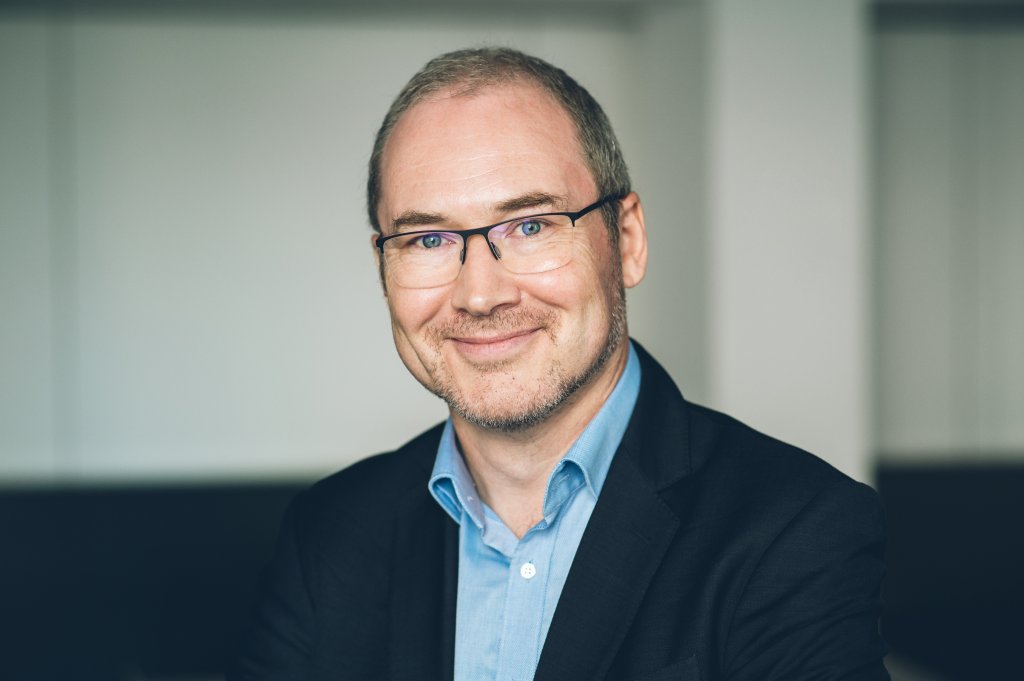
Univ.-Prof. Dr. Allan Hanbury
Professor for Data Intelligence
Technical University of Vienna
Bio:
Allan Hanbury is Professor for Data Intelligence, head of the Data Science Research Unit, and Faculty Representative (responsible for financial affairs and internationalisation) at the Faculty of Informatics, TU Wien, Austria. He is also faculty member of the Complexity Science Hub. He was scientific coordinator of the EU-funded Khresmoi Project on medical and health information search and analysis, and is co-founder of contextflow, the spin-off company commercialising the radiology image search technology developed in the Khresmoi project. He was coordinator of DoSSIER, a Marie Curie Innovative Training Network, educating 15 doctoral students on domain-specific systems for information extraction and retrieval. He also coordinated the EU-funded VISCERAL project on evaluation of algorithms on big data, and the EU-funded KConnect project on technology for analysing medical text.
Conference Closing
